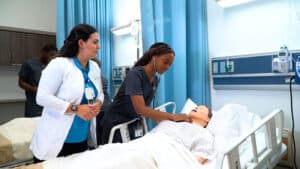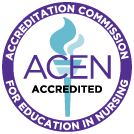
There are several pathways to becoming a nurse, each with its own requirements regarding education, testing, and getting a license. At FVI School of Nursing and Technology, we believe everyone should have the opportunity to achieve career success. Knowing about different types of nurses, what they do, and where they work will help you choose the nursing program that aligns with your personal and professional goals.
Practical Nursing
A practical nurse provides basic care to individuals who are injured, ill, disabled, or recuperating. Practical nurses are employed in schools, private practices, rehabilitation centers, assisted living facilities, and home health.
In Florida, practical nurses must be 18 years of age and have a high school diploma. To earn an LPN certification, candidates must graduate from an accredited program like FVI’s Practical Nursing School and pass the NCLEX-PN exam to become a licensed practical nurse.
FVI’s practical nursing track takes 14 months to complete earning a practical nursing diploma. We prepare you to take the NCLEX- PN, so that you can pass the exam and earn your license. Once passed, you can begin working as a licensed practical nurse. LPNs will find rewarding positions in their field and have the option to continue pursuing advanced nursing degrees. They can enroll in an ASN or BSN program and pass the NCLEX RN exam to provide more advanced care as a registered nurse.
The job outlook for LPNs in Florida and across the U.S. is bright. The Bureau of Labor Statistics projects the demand for LPNs to increase by 3% by 2033, which aligns with job growth across other occupations nationwide.
Associate of Science in Nursing
An associate’s degree in nursing (ASN) program prepares students to become RNs through hands-on learning, classroom education, skills labs, and simulations. You must pass the NCLEX to become a registered nurse. FVI uses the step-by-step NCLEX Success Plan to increase students’ chances of passing the required national licensure exam on the first attempt, along with NCLEX review courses to refresh their skills for greater success.
An associate’s degree program is a cost-effective, shorter, accelerated alternative to earning a bachelor’s degree in nursing. FVI’s ASN program allows high school graduates to enter the nursing field. It is also ideal for students who have already earned an undergraduate degree in another field and want to change careers.
Once you have passed the NCLEX and earned your license as an RN with an ASN, you can continue your education after entering the workforce. It is possible to earn an ASN and complete a BSN; in many cases, the schools will allow students to transfer some or all credits from their associate’s nursing program in Florida.
Licensed RNs work in almost every care setting imaginable, from emergency care to schools, home health, the ICU, and surgical centers.
Bachelor of Science in Nursing
A Bachelor of Science in Nursing (BSN) is an undergraduate degree that, like an ASN, is a starting point for nursing students to become RNs. This program combines classroom learning, skills labs, simulations, and clinical experience to prepare students to work in healthcare.
Once students complete their BSN, they can sit for the NCLEX and become licensed as an RN once they pass the exam. Although ASNs and BSNs both lead to an RN licensure once the NCLEX is passed, the BSN route is generally longer and more costly.
BSN programs vary by school but typically take upwards of four years or eight semesters to complete, and even longer for part-time students.
Which Career Path Is Right For Me?
Every nurse plays a pivotal role in patient care. They are caregivers and advocates, trusted providers, and friendly faces. If you want to make a difference and believe nursing is your calling, visit an admissions professional at FVI to explore your options. Learn about our nursing school in Miramar and our nursing school in Miami, Florida. You can also apply online to start the process today!










